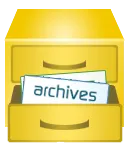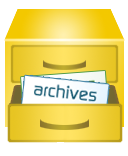NIH Alumni: Where are they now? Biologist
Job Title & Company: Biologist, FDA, Center for Devices and Radiological Health
Location: White Oak, MD
How long you’ve been in your current job: 1 year
Postdoc Advisor, IC: Dr. Maria Morasso, NIAMS
What do you do as a Biologist?
I mostly review pre-market regulatory submissions for in vitro diagnostic tests, which are considered medical devices. My division gets many different types of pre-market submissions (e.g., PMA, 510k) depending on the type of device and the type of test. My supervisor will assign me a submission and I then begin the review process. I work with product specialists, other reviewers in the division, and management to get a good idea of what we need, evaluate performance data to identify any potential safety issues, and determine what we should ask the industry sponsor to provide for us in order to complete the review. I also interact with the industry sponsor directly to clarify issues, request updates to the material, etc. Within a pre-determined time frame, we will decide whether the submission contains any deficiencies too significant for us to continue our review at that time. If so, we issue a hold letter with a list of items that the sponsor needs to address in order for us to continue our review. Or, if there are no deficiencies, I recommend approval or clearance of the submission and if management is in agreement, the sponsor can go ahead and market their product.
What are the most important skills that you utilize in your current position?
I do a lot of reading and a lot of writing. There are memos for everything and because I interact with the industry sponsors directly, it is very important to be able to write clearly. There is a highly specific way to write in regulatory affairs, which was a pretty steep learning curve for me coming to the FDA. I read probably a couple of hundred pages a day. It can be easy to get lost in the details, so it is really important to be able to extract the important points from a submission while keeping the big picture in mind. I would say this is very similar to manuscript reviewing for publication in journals.
How did you get up to speed on the regulatory affairs writing style?
The way it is done in my division (and in most other offices at the FDA), I was assigned a mentor who was different from my direct supervisor. In the beginning, that mentor worked with me on all of my submissions. She would edit my language and offer suggestions on how to word things. She would also provide examples for me to look at how certain issues had been addressed previously. This mentor worked closely with me for the first six months and my direct supervisor would meet with me every other week to go over any transition issues. In addition, I completed several months of coursework as part of the Reviewer Certification Program, which is a requirement for new reviewers in the Center for Devices and Radiological Health.
Other than the writing style, what has been the hardest aspect about transitioning into this career?
One of the hardest things to adjust to was the amount of reading that I do. I also sit in front of a computer all day. There is no getting up and doing experiments and then sitting back down. A lot of the work is very deadline driven. This wasn’t a problem in the beginning, but now that I have more parallel submissions to work on, it is very important to schedule my timelines well. In the lab, I could just do an experiment next week or not look at it for another month, so my current work is a lot less flexible than time management in the lab.
What is your favorite aspect of your current job?
I really love how diverse the work is and how relevant it is to public health. It is very rewarding for me to know that my work has a much more immediate impact than what I was working on when I was on the research side at the NIH. For example, I can go to the drug store and see some of the over the counter devices that we regulate. Our division reviews pregnancy tests, so when I see those, I think, “Oh, look at that – I am part of the pathway for this product to be on the market in the US!”
What was your job search like?
It started when I met with OITE pretty early on during my postdoc. I did all of those personality tests, but what really helped me was Science Career’s IDP. I knew I didn’t want to go into academia and I was looking for something that was a little more family friendly. One of the top hits from the IDP report was in Quality Assurance and Regulatory Affairs, and I didn’t know anything about it really. Then I remembered that I had met somebody from the FDA when I was in grad school. I looked her up and found out that she was still at the FDA. She invited me to come over to see the office for an informational interview and she gave me a couple more people to talk to. I started doing a lot of informational interviews in this area. I also used LinkedIn and found several alums not only from grad school but also from my college who now work as regulatory reviewers at the FDA. Most people were really willing to talk on the phone or in person for a couple of minutes. I made up a short questionnaire so I could ask everybody similar questions.
Eventually, one of my informational interviewees showed my resume to her supervisor and I was invited for an interview. I was originally hired as a Staff Fellow, which is a Title 42 direct hire position. After I had my interview, I had to submit a formal application for this position. A Staff Fellow is term-limited (for two years), so I continued applying for review positions in my division through USAJobs after I started at the FDA. After a few tries, I was successful and my Staff Fellow appointment was converted to a more permanent (GS) position as a Biologist.
What resume tips can you share?
One of the things I learned from my informational interviews was to highlight the following skills: time management, critical thinking, writing skills, presentation skills, and team work. For my resume, I tried to incorporate most of these skills into my qualifications summary on my resume. It also helped to highlight a lot of manuscript review experience because that is very similar to pre-market review work at the FDA.
What was your interview like?
It was a group interview. The way our division is structured is that we have several branch chiefs, kind of like lab heads. All of the branch chiefs were there. It was mostly based on my resume and they asked me questions on my background and what kind of lab techniques I was trained in, as well as questions on how I manage my time and why I wanted to work at the FDA. Overall, pretty standard questions and it was only a one round interview.
You have to have a lot of patience with the government hiring process, even with Title 42. For me, I interviewed in May and didn’t hear officially that I was going to be hired until the end of September. I have heard from others that generally the process takes about four months after a successful interview.
You did a lot of research and informational interviews about this field. Now that you are in it, is this work what you anticipated? Any surprises?
The type of work was expected, but the details weren’t. I didn’t realize how many different types of submissions we would get. There is a really big span from engineering to clinical trials to basic chemistry.
In hindsight, would you have done anything differently in your job search?
I would have started earlier. The postdoc helped in terms of the work experience, but not in terms of the technical knowledge. Part of me wishes I had explored this career option in graduate school in more detail.
For somebody, hoping to go down a similar path, do you have any last bits of advice?
My advice to others is to start early because it can take a long time to find an opening and to find somebody who needs a reviewer. Plus, it takes a while to get through the hiring process.







